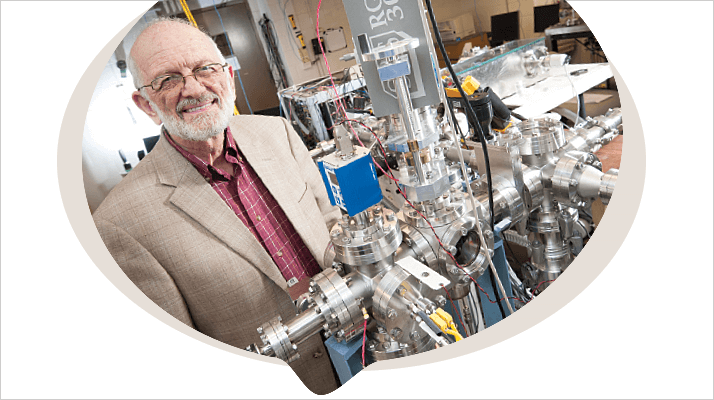
It has been a very good year for visionary mass spectrometrists. Richard D. Smith was recognized for his Distinguished Contribution to Mass Spectrometry by the American Society for Mass Spectrometry, and R. Graham Cooks, Henry Bohn Hass Distinguished Professor of Chemistry at Purdue University, was recently awarded the biennial 2013 Dreyfus Prize in Chemical Sciences. The announcement from the Camille and Henry Dreyfus Foundation cited Cooks’ introduction of tandem mass spectrometry, groundbreaking advances in ambient desorption/ionization, and his creation of miniature mass spectrometers. Here, Cooks discusses his career and his expectations for the future of chemistry.
Your reaction?
The subject for which I am being recognized has been decades in the making and many labs and individuals have contributed. I feel fortunate to have been part of this long-running campaign and to have experienced mass spectrometry when it was more a game with expensive toys and lots of promise, than a real science.
Your career?
That’s a good story. I was in South Africa doing natural products organic chemistry (isolation, purification and structure determination, before spectroscopy was widely available) and doing pretty badly at identifying the alkaloids in my mangrove tree. Then Carl Djerassi of Stanford and steroid fame visited the University of Natal and gave a public lecture on birth control. I was chosen to give the student response and after a conversation he took a sample back to Stanford and sent the mass spectrum and the structure within 10 days. After that, it was hard to do chromatography for separation and chemical reactions for structure determination!
Your motivation?
I like the excitement of science, the emotional richness. I like that we don’t know the answers and don’t really have recipes for getting them (unless the questions are boring). So, the unknown – plus the examples of energetic and driven people whom I have known.
Your inspiration?
All my work goes back to simplifying the process of complex mixture analysis – this includes the MS/MS experiments on plant material and biofluids that we did in the mid-70s and the recent ambient ionization experiments and the attempts to do on-site measurements by mass spectrometry. The latter requires a miniature mass spectrometer.
Your recommendation?
I really like the work on single cells done by H. C. Chang’s group at Academia Sinica – taking mass measurements out to 1013 Daltons. Also, the very elegant studies of Helmut Schwarz (Technische Universität Berlin) on catalysis in the gas phase. And I am a great admirer of Don Hunt (University of Virginia) who gets a major share of the credit for starting the field of proteomics.
Your inspirational words of wisdom?
Analytical science has great dynamic range. You can work on the practical end, on emerging instruments, or on big data manipulation. You can collaborate and publish with surgeons, with crime fighters, with the FBI/MI5, with biologists of all genotypes, and with your vet and pharmacist. High quality work can be done wherever you are and whatever your position.
Your predictions?
Ions are one of the states of matter. Given that there are only four or five such states, mass spectrometry – the science and technology of ions – should get 20-25 percent of science resource... More realistically, MS on every synthetic chemist’s bench, monitoring reactions and intermediates in real time, including air- and water-sensitive reactions. To get to that point we should teach organic labs using mass spectrometers to run (solution phase) reactions on the one microgram scale (preparative MS) and go through substituent effects, kinetics, and solvent effects, in a single three hour lab period. At the end of the semester/term, real-time MS will be as essential to that group of students as NMR is now.
For more on the Cooks Group: aston.chem.purdue.edu. For more on the Dreyfus Foundation: www.dreyfus.org




